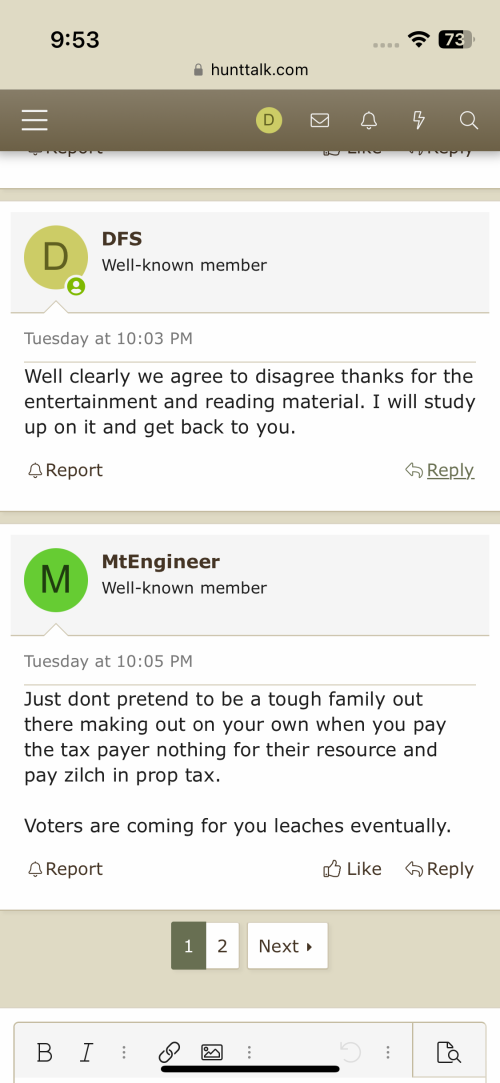Forkyfinder
Well-known member
- Joined
- Dec 13, 2023
- Messages
- 2,532
Hunt talkers,
What are your thoughts on grazing fees? In doing research after a frustrating year in the breaks - seeing elk concentrated on ungrazed private really made me question some things.
Heres some thoughts:
1. Grazing fees are cheaper than 1980. Yes. That is right - it is cheaper today than in the ealry 80s to have cattle on public land. $2.31 per cow calf pair per month in 1980, $1.35 in 2024.
2. Montana and wyoming are number 7 and 14 respectively in terms of beef production - this begs the question - is this subsidy really worth it in critical areas? None of the other top 15 states have didly for public land.
3. Ovegrazing has been an a
anecdotal observation in the breaks. I get it. Droughts happen - however - why does the public land and wild life have to suffer first? If it is cheaper to use a public resource than your own - it seems problematic.
4. Cattle grazing can be very complementary and/or beneficial to elk grazing in certain areas and topogralhy - however they eat a lot of the same food.
There are members with regulation experience, ranchers, and wildlife ecology specialisits. All with likely more informed opinions than mine - and im asking the questions to spark the discussion.
How do we get more elk on the mountain and a more even trade on the food that wildlife eat? Or - am i truly missing something?
P.s. an ugly beneficial truth of outfitting - it makes landowners with a lot of critical winter range habitat more tolerant to wildlife and especially elk.
What are your thoughts on grazing fees? In doing research after a frustrating year in the breaks - seeing elk concentrated on ungrazed private really made me question some things.
Heres some thoughts:
1. Grazing fees are cheaper than 1980. Yes. That is right - it is cheaper today than in the ealry 80s to have cattle on public land. $2.31 per cow calf pair per month in 1980, $1.35 in 2024.
2. Montana and wyoming are number 7 and 14 respectively in terms of beef production - this begs the question - is this subsidy really worth it in critical areas? None of the other top 15 states have didly for public land.
3. Ovegrazing has been an a
anecdotal observation in the breaks. I get it. Droughts happen - however - why does the public land and wild life have to suffer first? If it is cheaper to use a public resource than your own - it seems problematic.
4. Cattle grazing can be very complementary and/or beneficial to elk grazing in certain areas and topogralhy - however they eat a lot of the same food.
There are members with regulation experience, ranchers, and wildlife ecology specialisits. All with likely more informed opinions than mine - and im asking the questions to spark the discussion.
How do we get more elk on the mountain and a more even trade on the food that wildlife eat? Or - am i truly missing something?
P.s. an ugly beneficial truth of outfitting - it makes landowners with a lot of critical winter range habitat more tolerant to wildlife and especially elk.
Last edited:





